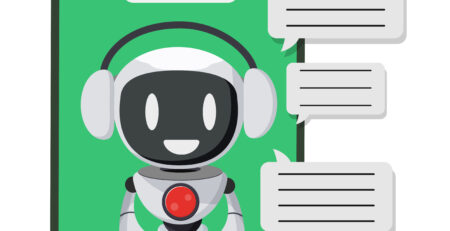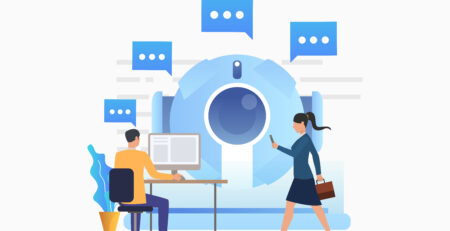Introduction to Chatbot Services
Introduction
In an era defined by the rapid pace of technological advancement and the ever-evolving preferences of consumers, businesses are continually in search of innovative ways to connect with their target audience. Among the standout solutions that have emerged in recent years, the integration of chatbot services into customer communication strategies has proven to be transformative. These intelligent and automated conversational agents are reshaping the landscape of business-customer interaction, providing a level of seamless and efficient communication that was previously unprecedented.
Demystifying Chatbot Services
Chatbot services, often powered by sophisticated Artificial Intelligence (AI) and Natural Language Processing (NLP) technologies, represent the next evolutionary step in customer engagement. These virtual assistants operate through real-time text-based conversations, adeptly simulating human-like responses to facilitate interactions that are not only personalized but also highly responsive and efficient.
🤖 88% of users had at least one conversation with a chatbot in 2022 (Tidio).
~Source
Navigating Conversational AI: The Empowering Force of Chatbot Solutions
At the core of chatbot services lies Conversational AI, a technology that holds immense transformative potential across various sectors and industries. As the total volume of messaging has experienced a remarkable surge, increasing by over 50% in recent times—largely driven by the aftermath of the global COVID-19 pandemic—businesses are recognizing the need to adapt to their customers’ preferred mode of communication. The agility of chatbots in delivering quick, accurate, and round-the-clock responses directly addresses this demand, effectively positioning businesses for elevated levels of customer satisfaction.
From Messaging Surge to Elevated Customer Engagement
In a world where time is a precious commodity, customers are increasingly seeking convenience and immediacy in their interactions with brands. This significant shift in consumer behavior has paved the way for the ascendancy of chatbot services. Astonishingly, a staggering 64% of individuals now express a preference for messaging over traditional communication channels like phone calls or emails when engaging with businesses. This seismic change underscores the paramount importance of aligning business strategies with the evolving preferences of customers.
The scope of chatbot services extends well beyond mere text-based interactions. Thanks to the remarkable strides made in AI technology, certain chatbots now possess the capability to support voice and visual interactions, thereby catering to an even broader range of user preferences. Furthermore, the seamless integration of chatbot services across multiple platforms—ranging from websites and mobile apps to social media platforms—empowers businesses to provide consistent and efficient support, irrespective of the specific channels customers choose for engagement.
Unlocking the Future Potential
As businesses continue to recognize the undeniable value that chatbot services bring to the table, their future potential is nothing short of promising. From personalized interactions that make customers feel valued, to the operational efficiency gained through automation, chatbot services are emblematic of the innovative strides that technology is enabling in the realm of customer engagement. By embracing and harnessing these technologies effectively, businesses can forge stronger connections, elevate customer satisfaction, and position themselves as leaders in the ever-evolving landscape of modern commerce.
Expanding on the Benefits of Chatbot Services
1. Improved Customer Satisfaction:
Chatbots provide immediate responses and personalized interactions, enhancing the overall customer experience. They can answer frequently asked questions, assist with troubleshooting, and even guide customers through the purchase process, all while maintaining a high level of consistency and accuracy.
2. Cost Efficiency:
By automating routine customer inquiries and support tasks, chatbots can significantly reduce operational costs. Businesses can redirect human resources to more complex and value-added activities, optimizing workforce productivity.
3. 24/7 Availability:
Chatbots operate round-the-clock, ensuring that customers can access support and information at any time, even outside of regular business hours. This availability caters to a global audience and accommodates various time zones.
4. Data-Driven Insights:
Chatbots gather valuable data from customer interactions, enabling businesses to gain insights into customer preferences, pain points, and frequently discussed topics. This data can inform marketing strategies, product development, and customer service improvements.
5. Multichannel Support:
As mentioned earlier, chatbots can be seamlessly integrated across multiple communication channels, providing a consistent and efficient support experience whether customers engage through a website, mobile app, or social media platform.
6. Scalability:
Chatbots are easily scalable, allowing businesses to adapt to fluctuating customer demand without the need for extensive human resource adjustments. This scalability ensures that customer support remains efficient during peak periods.
7. Personalization at Scale:
Chatbots can analyze customer data and tailor responses based on individual preferences and behaviors. This personalization creates a more engaging and relevant customer experience.
The Evolving Landscape of Chatbot Technology
Chatbot technology continues to evolve, incorporating advanced features and capabilities:
1. Natural Language Understanding (NLU):
Chatbots are becoming more adept at understanding the nuances of human language, making interactions more natural and context-aware.
2. Integration with Other Systems:
Chatbots can seamlessly integrate with a variety of systems, including CRM software, e-commerce platforms, and payment gateways, to provide comprehensive support and functionality.
3. Voice Recognition:
Voice-activated chatbots are becoming increasingly common, allowing users to interact with them using voice commands. This technology is particularly valuable in hands-free or mobile scenarios.
4. AI-Powered Recommendations:
Chatbots can analyze user preferences and behaviors to make product recommendations, increasing upsell and cross-sell opportunities.
5. Emotional Intelligence:
Some advanced chatbots are equipped with emotional intelligence capabilities, allowing them to recognize and respond to user emotions, which can enhance the quality of customer interactions.
Conclusion
The integration of chatbot services into business communication strategies represents a powerful and transformative tool for improving customer engagement, efficiency, and satisfaction. As technology continues to advance, chatbots are poised to play an even more significant role in shaping the future of customer interaction.
To stay competitive in today’s fast-paced business landscape, organizations should consider embracing chatbot technology and harnessing its potential to create meaningful connections with their audience. By doing so, they can position themselves as leaders in the ever-evolving world of modern commerce.
To explore this topic further and gain a comprehensive understanding of chatbot services, you can delve into our in-depth blog on the ultimate guide to chatbot service by clicking here.







